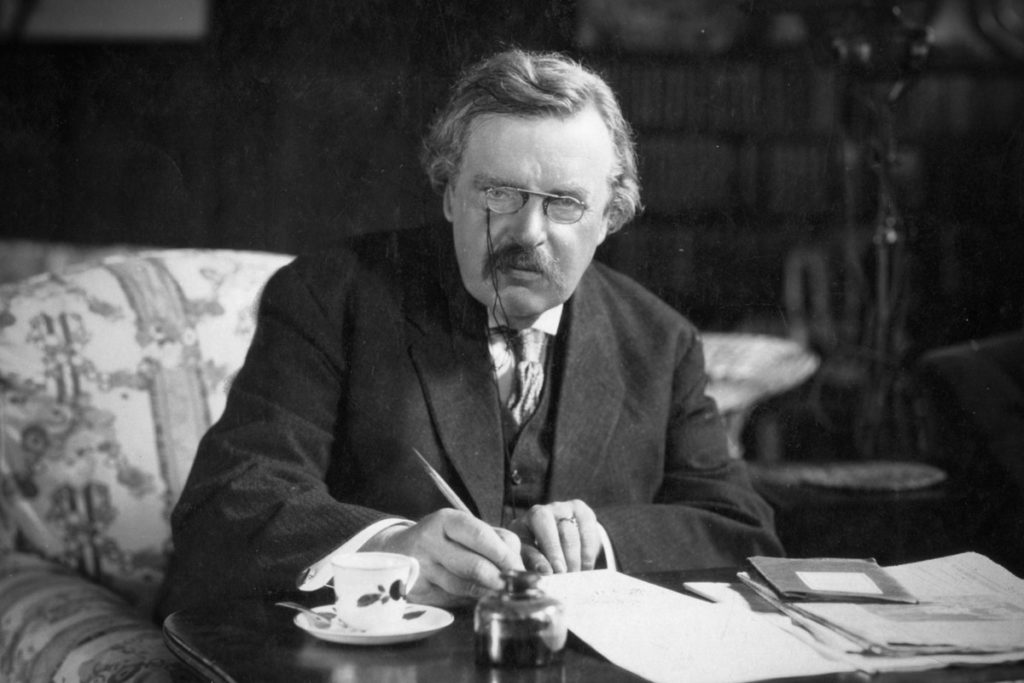Localism
What is Localism?
“Localism” is the term that the Society of G.K. Chesterton is now using as an alternative to the term “Distributism,” which seemed to cause endless confusion in both Chesterton’s time and our time. While Distributism is an alternative to both Socialism and Capitalism, it was considered by Capitalists to be too much like Socialism, and by Socialism to be too much like Capitalism. It was meant to describe a social and political system based on widespread ownership, which makes for a more stable and just society. If we call it Localism because we support local production and consumption of goods, local control of government, and promotion of local history, local culture and local identity, and protection of local freedom. Localism obviously favors de-centralization and directness, and is even more obviously opposed to globalism and collectivism. “Everybody said the great modern war was between Capitalism and Socialism. We said there was no war; for it was only between Centralization and Centralization.” (G.K.’s
Weekly, Sept. 28, 1929)
Localism is concerned with human dignity, but also human responsibility. People want to take responsibility for their own lives, and they are increasingly frustrated and alienated by the fact that everything is out of their control and they cannot really say who is in control. They are weary of the complexities and complications brought on by bottomless bureaucracy and endless regulations, everything separated from everything else, and no one being answerable for anything.
Localism means having a say in what happens to you. It means keeping accountable those who have power that affects you. As Chesterton says, you should be able to keep your politicians close enough to be able to kick them. It means keeping your dollars in your community, buying from your neighbor. It means owning your own piece of the community.
And there is nothing more local than the family. There is nothing more local than the home. By Localism, we mean an economy and a political system based on the family. When Christ came, he first came into a family. Chesterton says Christianity has always been a domestic religion because it started with the Holy Family. And he says that each family is a tiny kingdom – that is, a local kingdom – that creates and loves its own citizens.
We maintain that the family’s rights are primary, above the interests of individual or the community, but in recognizing the family as primary, it serves both the individual and the community, that is, the common good. If we begin with the dignity of providing for and protecting and loving our own families, the next natural step is to treat our neighbors with the same respect and charity so that their families can enjoy what we enjoy. Thus, Catholic Social Teaching – and Localism – may be summed up as “Love your
neighbor as yourself.”
Chesterton Quotes on Localism
The truth has made us free; the tradition has given to men the sort of liberty they really like; local customs, individual craftsmanship, variety of self-expression, the presence of personality in production, the dignity of the human will. These are expressed in a thousand things, from hospitality to adventure, from parents instructing their own children to children inventing their own games, from practical jokes to pilgrimages and from patron saints to pub signs. (G.K.’s Weekly, June 12, 1926)
G.K. Chesterton Tweet
The 'homespun' ideal [is] the idea that it is better to do things inside rather than outside the frontier or the fence: that we often lose more than we gain by chaffering with strangers, whether they are pedlars on the road or brokers on the Stock Exchange; that there are not only domestic virtues but domestic values, in the sense of utility and beauty, which are best safeguarded by purely domestic traditions; that not only dirty linen, but much more emphatically, clean linen, is best dealt with at home. (G.K.’s Weekly, Aug. 10, 1933)
G.K. Chesterton Tweet
The way to make a living thing is to make it local. (GKC quoted in the Walsall Observer, Jan. 3, 1931)
G.K. Chesterton Tweet
Christianity does appeal to a solid truth outside itself; to something which is in that sense external as well as eternal. It does declare that things are really there; or in other words that things are really things. In this Christianity is at one with common sense; but all religious history shows that this common sense perishes except where there is Christianity to preserve it. (“The Demons and the Philosophers,” The Everlasting Man)
G.K. Chesterton Tweet





